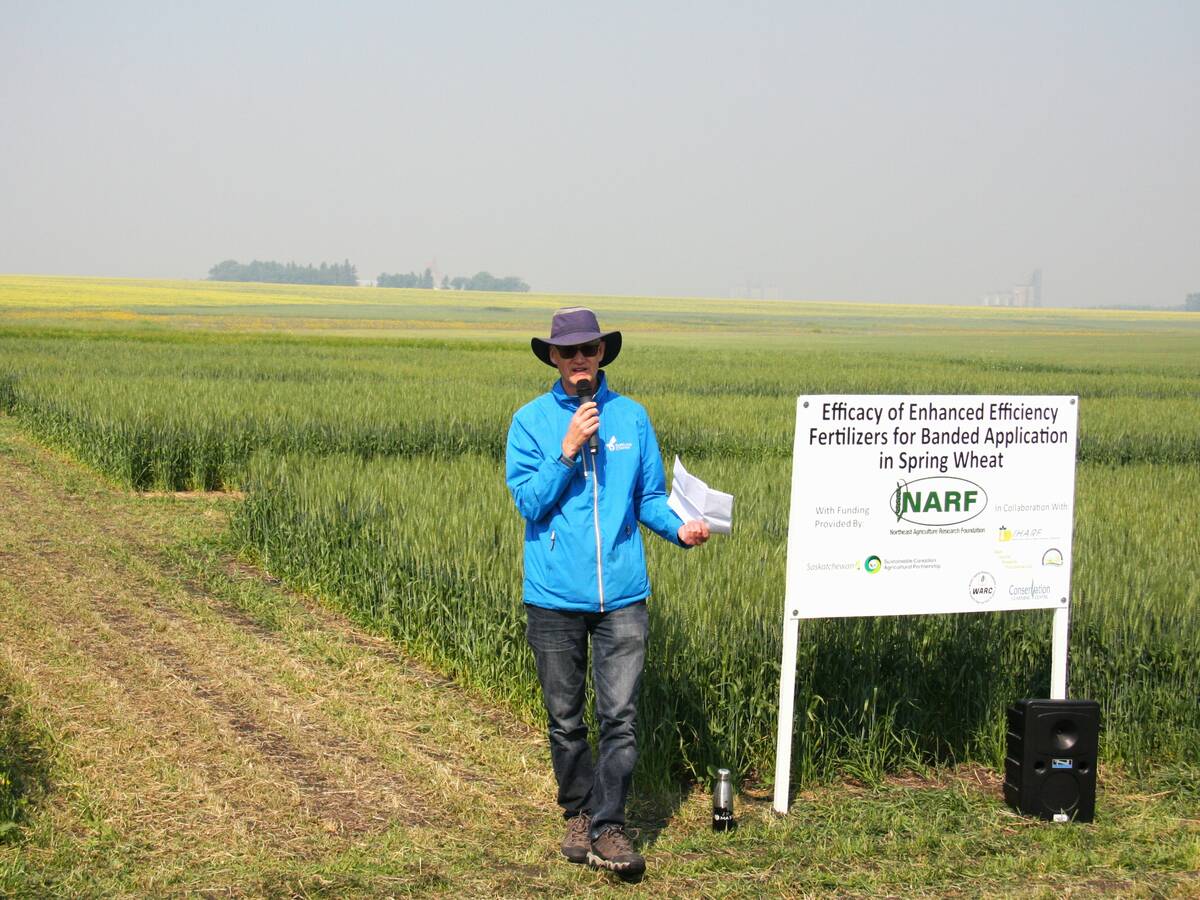The bird cage door has once again slammed shut on canaryseed sales to Mexico.
Canadian and Mexican plant protection officials have failed to extend an interim agreement regarding quarantine weeds that expired June 21.
“For nearly a year government officials have been negotiating a solution, and the expiry of the agreement is a failure to ensure that trade can continue,” said Gordon Bacon, chief executive officer of the Canadian Special Crops Association.
Canadian farmers and processors and Mexican processors and customers will suffer, he said.
Read Also

Fertilizer method’s link to emissions studied
A researcher says others studying greenhouse gas emissions aren’t considering how the loss of nitrogen into the atmosphere correlates with fertilizer application or if there is an impact to yield.
“A missed deadline means missed sales.”
Kevin Hursh, executive director of the Canaryseed Development Commission of Saskatchewan, said the trade impasse will likely result in more downward pressure on already lackluster canaryseed prices.
“The price is maybe not going to crash and burn at this development, but it certainly isn’t at all supportive of prices given the supply and demand situation,” he said.
New crop canaryseed prices of 25 to 26 cents per pound are already too low, he added, considering the Canadian Wheat Board’s Pool Return Outlook for new crop durum is more than $10 per bushel on farm.
“Compared to where everything else is at, canaryseed should be 30 cents-plus to be competitive,” said Hursh.
Mexico is Canada’s largest canaryseed customer, typically accounting for 25 percent of total exports.
The market was jeopardized last summer when Mexico began enforcing a zero tolerance policy for quarantine weed seeds such as wild buckwheat, stinkweed and cow cockle.
Trade ceased until officials in both countries agreed to a temporar y workaround in which any shipment from Canada that didn’t meet requirements could be recleaned in Mexico and moved to destination.
Sales soon resumed, and Mexico imported 20,785 tonnes of Canadian canaryseed through the first seven months of the 2010-11 campaign, representing 25 percent of the total export program for that period.
Hursh said trade will halt again unless a new agreement can be reached because exporters will have a tough time meeting Mexico’s strict zero tolerance rules.
Canaryseed demand is static from year to year so it is doubtful another country will pick up the slack in Mexican demand.
Hursh said it is disappointing that so little progress has been made after a year of negotiations.
“I think it’s to the stage where we probably need some fairly high political intervention to say, ‘why are you treating canaryseed different than all the other grains you import into Mexico?’ ”
Bacon said the failure of negotiations highlights the need for a science- basedapproach to assessing and managing risk.

















